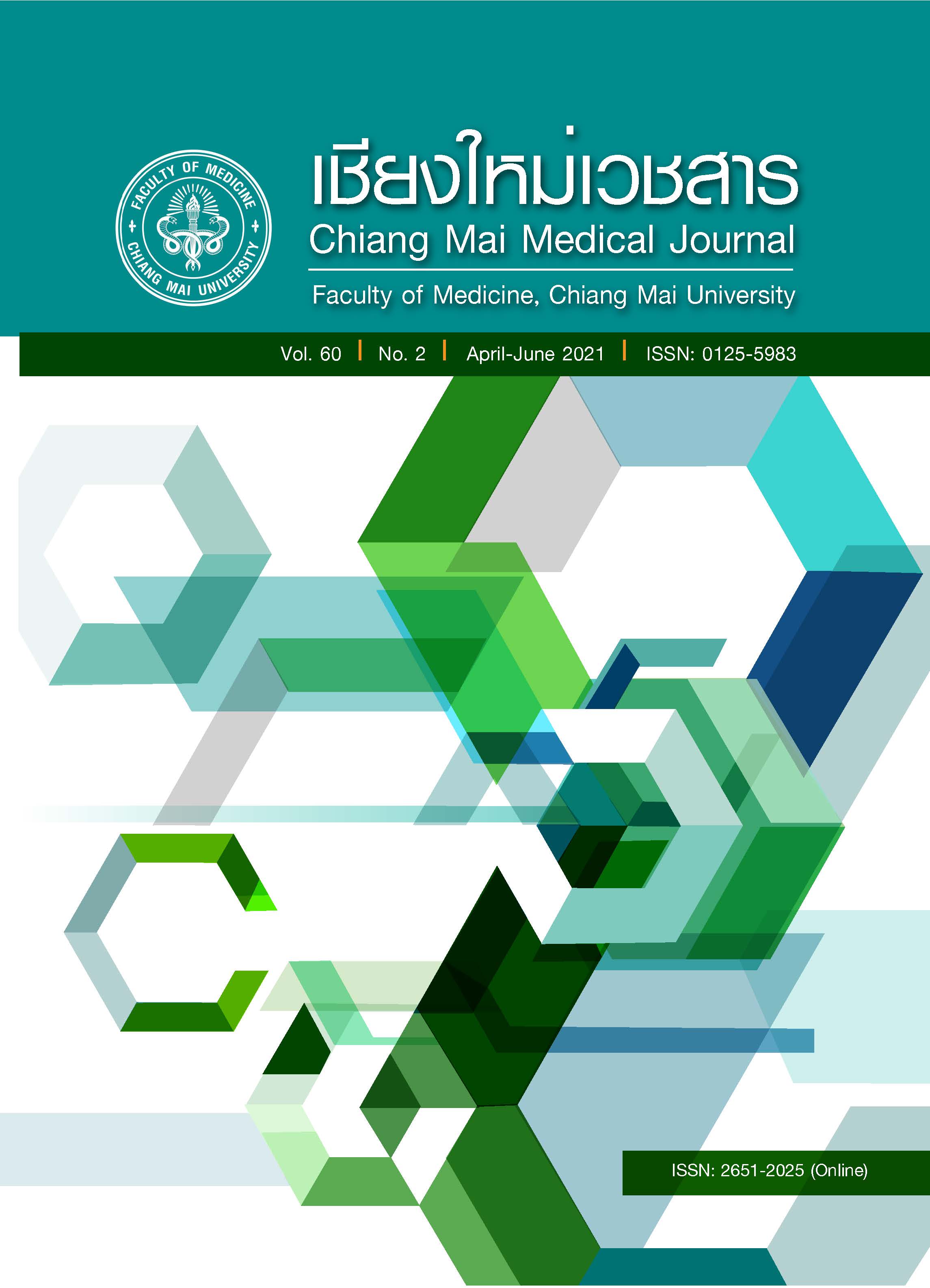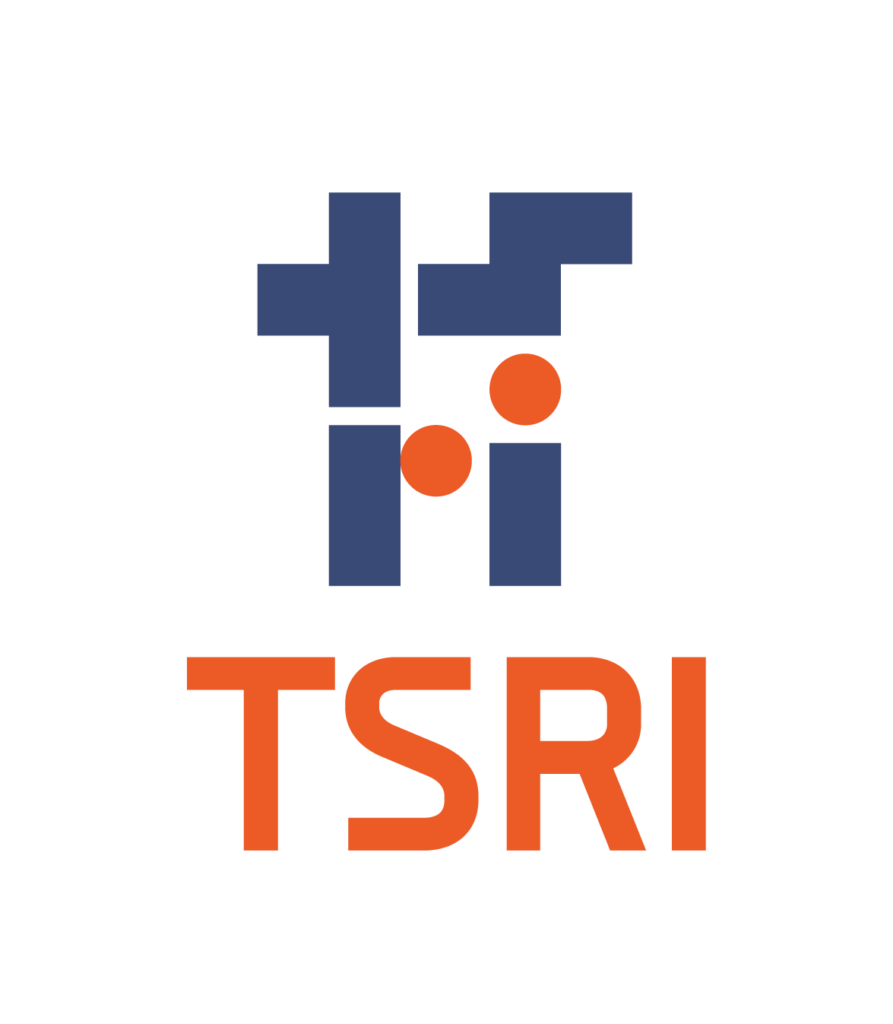Effects of the participatory learning program for student leaders on food management knowledge and practice in school
ผลของโปรแกรมการเรียนรู้แบบมีส่วนร่วม
Keywords:
participatory learning program,student leaders, food management, practice in food managementAbstract
Objectives This study aimed to compare students’ knowledge and practices related to managing school meals before and after a participatory learning program.
Methods The study used a one group pretest–posttest quasi-experimental design with assessment conducted before and after a participatory learning program. The study included 34 student leaders who participated in the program during February to March 2020. The data were analyzed using descriptive statistics, t-test, and the Wilcoxon Matched Pairs Signed-Ranks test.
Results The 34 student leaders (64.7% female and 35.3% male, average age 16.91 years) scored 15.26 before the knowledge segment of the program and 19.35 after that program. They received an average score of 9.0 before the practices segment of the program which improved to 20.00 after the program. The increase in both knowledge and practice scores were statistically significant (p < 0.001, p < 0.001).
Conclusion Food management in schools is essential to the nutritional status of students. A participatory learning program can significantly improve student leaders’ knowledge and practices related to school food management. Student leaders can conduct these programs and exchange ideas with other students. School food management policies can then be adjusted accordingly.
References
Thai health promotion foundation. Office of the basic education commission survey found Thai children fat more than skinny [internet]. 2019. [cited 2020 April 10]. Avail-able from:https://www.thaihealth.or.th/Con-tent/49060. [in Thai]
World Health Organization. Overweight and obesity [internet]. 2016. [cited 2020 April 10]. Available from:http://www.who.int/ media-centre/factsheets/fs311/en/
Dechkhamron P. Obesity inchildren [inter-net]. 2016. [cited 2020 April 10]. Available from:https://www.chiangmaihealth.go.th/cm-pho_web/document/160817147141801012.pdf [in Thai]
Chotbang J, Namphrom N, Worakitphunphon P. The effect of empowerment program on food consumption behavior and physical ac-tivity in children with over nutrition. Nursing journal 2012;39:22-34. [in Thai].
Choochan S , Thongbai W, Kornbut J. The ef-fect of a program on promoting self - efficacy and family support on food consumption behavior of overweight school age children. Boromarajonani College of Nursing Journal Bangkok. 2016;32:31-49. [in Thai].
National Electronics and Computer Technol-ogy Center (NECTEC). Thai School Lunch [internet]. 2018. [cited 2020 March 10]. Available:from: https://www.nectec.or.th/innovation/innovation-software/thaischool-lunch.html [in Thai].
Ueawongkul W. School food management system lessons. Bangkok: Office of the Na-tional Health Commission. 2017.
Singsathit W. Factors affecting the implemen-tation of the lunch project in primary schools: a case study of Samut Prakan Primary Educa-tional Service Area 1 [Master thesis] : Faculty of Public Administration Srinakharinwirot Uni-versity. 2012[in Thai].
Srivichai C, Yusuk P, Phraepasa W. Excess nutritional status in primary school children 1-6, Wat Moonjinda School and Thanyasilp School. Eastern Asia University Journal. 2011; 7:40-5. [in Thai].
National Health Commission. Total of national health assembly resolutions 1-7 2015. Bang-kok: San Suay Limited Partnership. 2015. [in Thai]
Rerksirisuk C. School with fat children.Bang-kok: October. 2005. [in Thai].
Chaninayutwong W, (editor). Participatory training manual. Bangkok: Bureau of mental health development, department of mental health, ministry of public health. 2000. [in Thai]
Andres P. Developing the potential of student leaders in waste management in schools by participatory learning [Master thesis]. Chiang Mai: Faculty of Nursing Chiang Mai University. 2019. [in Thai].
Rin Saengpin. Development of participatory learning activities to strengthen life skills for children and youth leader in Luang Tai Sub-district [Master thesis]. Lampang: Lampang Rajabhat University. 2015. [in Thai].
Leithwood K, Seashore K, Anderson S, Wahl-strom K. Review of research: How leadership influences student learning. 2004. [cited 2020 March 10]. Available from:https://conservan-cy. umn.edu/ handle/11299/2035
Phang Pom D. The effect of participatory learning on behavior modification smoking of high school students in Chiang Mai [Master thesis]. Chiang Mai: Rajabhat Chiang Mai Uni-versity. 2019. [in Thai]
Downloads
Published
How to Cite
Issue
Section
License
Copyright (c) 2021 Chiang Mai Medical Journal

This work is licensed under a Creative Commons Attribution-NonCommercial-NoDerivatives 4.0 International License.










